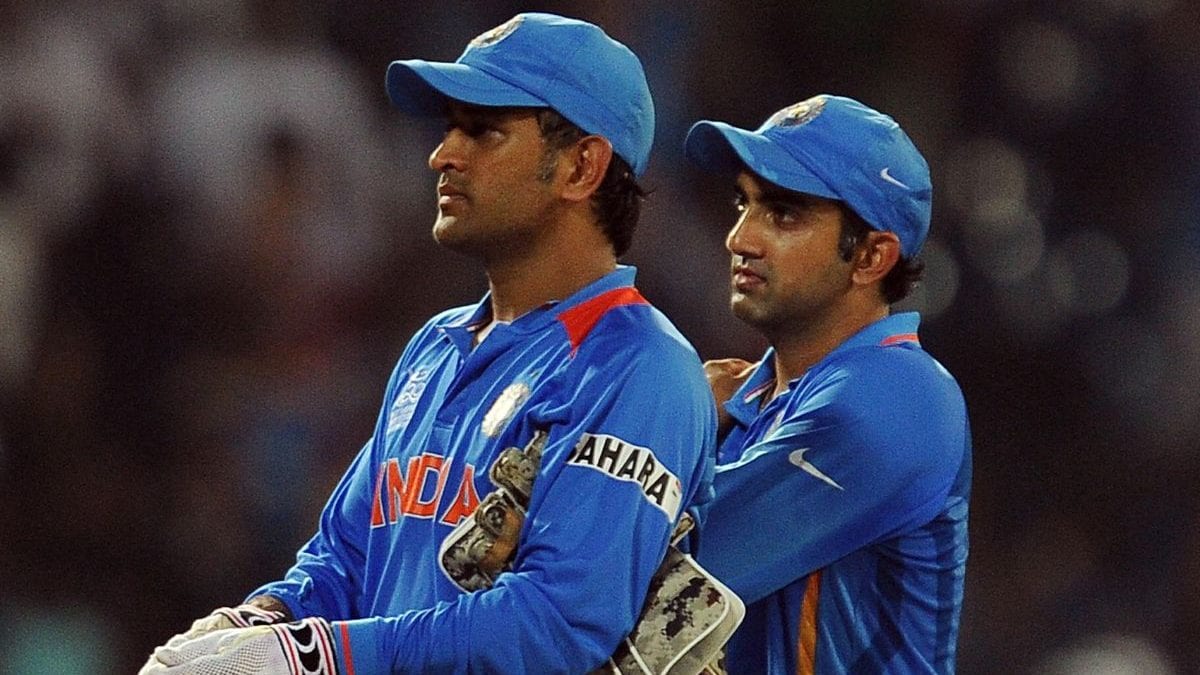

Former Indian cricketer Atul Wassan has offered a compelling perspective on why MS Dhoni, despite his legendary status, might never take on the role of head coach for the Indian cricket team. Wassan's analysis, shared on the "Bails and Banter" show, suggests that Dhoni's inherent temperament and lifestyle preferences are better suited to mentoring than the demanding, control-oriented nature of coaching. He contrasted Dhoni's potential approach with that of Gautam Gambhir, the current head coach, implying that Gambhir's personality is more aligned with the requirements of a head coach.
Wassan articulated that coaching, especially at the international level, demands a high degree of control and a need for importance. He characterized it as a role for individuals who are "control-fixed," suggesting that coaches need to be deeply involved in strategizing, directing, and maintaining a structured environment. In contrast, he described mentoring as a more relaxed and personal endeavor, where experienced figures offer guidance and advice when approached by players. This distinction is crucial in understanding why Dhoni, according to Wassan, may not find coaching appealing.
Dhoni, known for his calm demeanor and ability to remain composed under pressure, has always projected an image of effortless leadership. His captaincy was marked by a sense of trust in his players and a knack for making shrewd decisions in critical moments. This style, while incredibly effective on the field, might not translate directly into the more hands-on, directive approach often expected of a head coach. Wassan pointed out that Dhoni's lifestyle, which involves avoiding the constant travel and rigorous schedules associated with coaching, also plays a significant role in his potential reluctance to take on the job.
The role of the head coach for the Indian cricket team is incredibly demanding. It involves not only strategizing and guiding the team but also dealing with intense media scrutiny and managing the expectations of a cricket-crazy nation. The recent tenures of Ravi Shastri and Rahul Dravid, both of whom opted not to extend their contracts, underscore the toll that the job can take on one's personal life. Gautam Gambhir, who took over from Rahul Dravid in July 2024, is now navigating these challenges, with his performance under close observation.
Interestingly, Gautam Gambhir's appointment itself has sparked discussions about coaching styles. While some appreciate his no-nonsense approach and desire to instill fearless cricket, others have raised concerns about his "prickly" and competitive nature. Former Australian captain Tim Paine even suggested that Gambhir's style might not be the best fit for the Indian team, especially if they face early setbacks. Whether Gambhir can successfully adapt his leadership style to the unique dynamics of the Indian dressing room remains to be seen.
In contrast to a "control-fixed" approach, MS Dhoni's leadership has often been described as intuitive and adaptable. He is known for his ability to read the game and make unconventional decisions that often pay off. This flexibility and willingness to empower his players might be more aligned with a mentoring role, where he can offer guidance and support without imposing a rigid structure. Several sources highlight Dhoni's hands-off style and point out that in 2021, he served as a mentor for the Indian side during the T20 World Cup, though the results of that endeavor were less than stellar.
Ultimately, whether MS Dhoni ever becomes a coach remains a matter of speculation. Atul Wassan's insights offer a valuable perspective on the different demands of coaching and mentoring, and why Dhoni's unique qualities might make him better suited for a more relaxed, advisory role. As Dhoni enjoys his post-IPL life in Ranchi, cricket fans can continue to admire his contributions to the game, whether he chooses to return in a formal capacity or simply continues to inspire through his legacy.